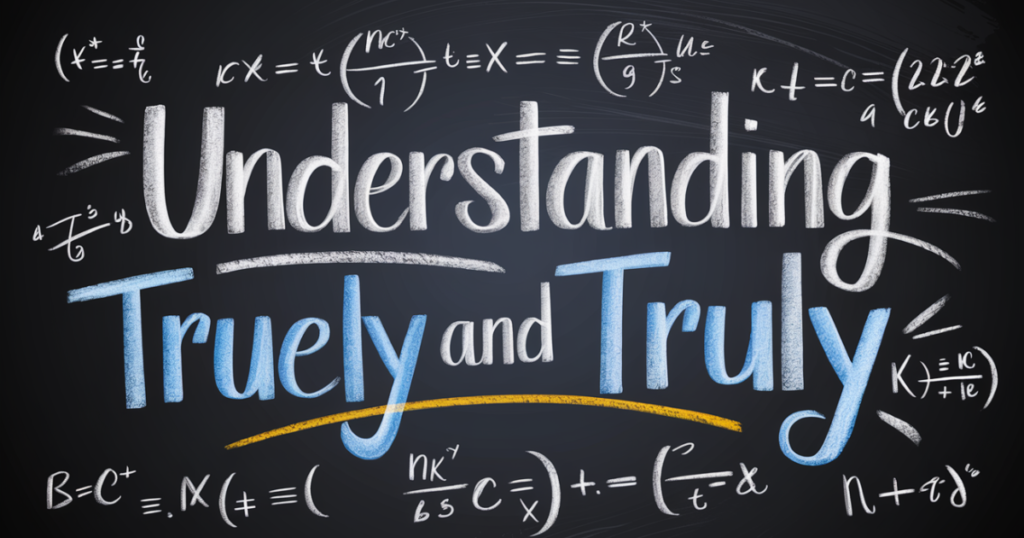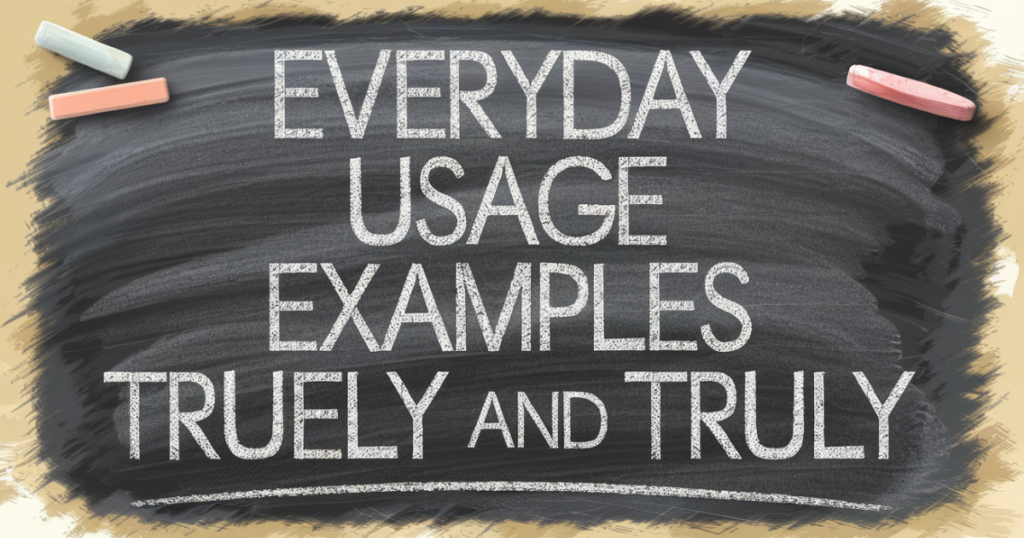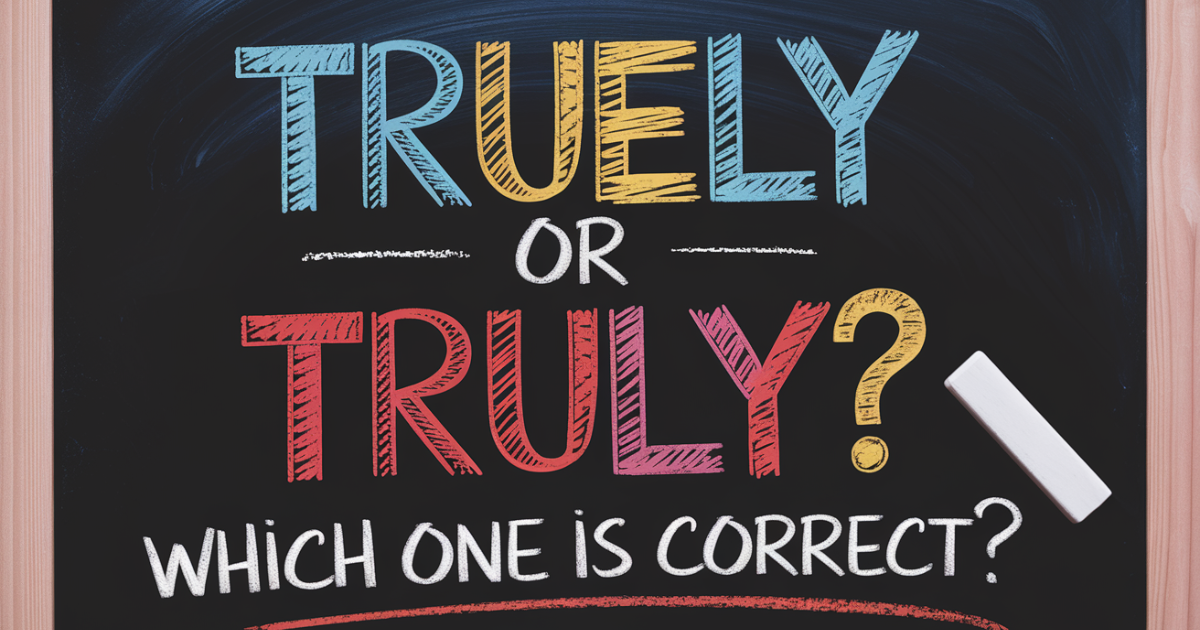Have you ever hesitated when spelling “truly,” wondering if it should be “truely”? This common confusion comes up because many words ending in “-ue” keep that structure when adding suffixes. However, “truly” is an exception, dropping the “e” to form its correct spelling.
Despite how “truely” might seem logical, “truly” is the only correct spelling in modern English. This streamlined version has been in use for centuries, leaving “truely” as an incorrect form. So next time you’re writing, remember to skip the “e” and confidently use “truly”.
Understanding Truely And Truly

Truely: A Common Misspelling
“Truely” is a frequent misspelling of the word “truly,” often arising from confusion about how to correctly add suffixes to words ending in “-ue.” This version mistakenly retains the “e,” which is not needed in this context.
While it may seem like a logical variation, “truely” does not appear in standard English dictionaries. Recognizing this error can help improve clarity and accuracy in writing.
Truly: The Correct Form
“Truly” is the correct spelling of the adverb that expresses sincerity, truthfulness, or genuine sentiment. This word is often used to emphasize honesty or authenticity in a statement. It conveys a sense of certainty and can enhance the emotional weight of what is being said.
Remember, using “truly” instead of the incorrect “truely” is essential for clear and effective communication.
Examples
- I truly believe that kindness can change the world.
- She was truly grateful for all the support she received during her recovery.
You Also Like To Read This: Nosy or Nosey? The Great Debate
Side-By-Side Comparison
Here’s a side-by-side comparison of “Truely” and “Truly” to highlight their differences:
| Aspect | Truely | Truly |
| Definition | Incorrect spelling of the adverb meaning “in a true manner” | Correct spelling of the adverb meaning “in a true manner” |
| Usage | Rarely used; considered a misspelling in standard English | Commonly used in both formal and informal contexts |
| Spelling Preference | Not accepted in formal writing | Widely accepted and recognized in all forms of writing |
| Connotation | Lacks credibility and may confuse readers | Conveys sincerity and truthfulness |
| Key Difference | “Truely” is not a recognized word in standard English | “Truly” is the only correct spelling and carries full meaning |
| Examples | – He spoke truely about his feelings. | – She truly appreciates your help. |
| – I truely want to understand your perspective. | – They truly enjoyed the concert last night. |
In summary, “truly” is the correct and accepted form in English, while “truely” is an incorrect spelling that should be avoided. Using “truly” ensures clarity and correctness in communication.
Everyday Usage Examples

Here are some everyday usage examples for the word “truly”:
- I truly appreciate all the effort you’ve put into this project.
- Her smile was truly infectious, lighting up the entire room.
- He is truly dedicated to his work and always goes the extra mile.
- I truly believe that honesty is the best policy in any relationship.
- They truly enjoyed their vacation and made lasting memories together.
- I felt truly honored to receive such a meaningful award.
- She is truly passionate about her art, and it shows in her creations.
- The food at that restaurant is truly delicious; I can’t recommend it enough.
These examples illustrate how “truly” can be used to emphasize sincerity, appreciation, and genuine feelings in various contexts.
FAQs
Is it truely or truly correct?
The correct spelling is “truly,” which is the accepted form in English. “Truely” is a common misspelling that should be avoided.
Is truely a real word?
“Truely” is not recognized as a real word in standard English dictionaries. It is considered a misspelling of “truly.”
Is it yours truly or truely?
The correct phrase is “yours truly,” which is a common closing in letters. “Truely” is incorrect in this context and should not be used.
Why is there no e in truly?
The spelling “truly” follows standard English rules, which often drop the final “e” when adding suffixes. The correct form maintains clarity and consistency in usage.
Conclusion
In conclusion, the correct spelling of the adverb is “truly,” not “truely,” which is a common misspelling. “Truely” does not exist in standard English, and using it can lead to confusion and a lack of credibility in writing. The phrase “yours truly” exemplifies the correct usage of “truly” as a polite closing in correspondence.
Understanding why “truly” drops the final “e” helps reinforce its proper spelling and usage. Recognizing these distinctions is essential for clear and effective communication. Ultimately, using “truly” reflects attention to detail and a commitment to language accuracy.

Grammerlytips.com, authored by Jame, offers expert tips and insights on mastering grammar, enhancing writing skills, and boosting communication effectiveness.

